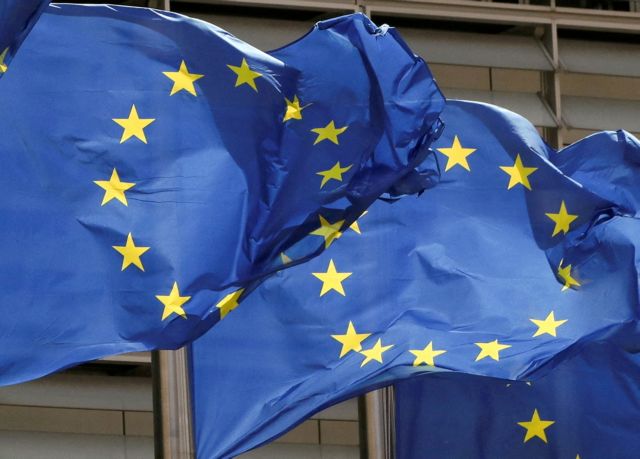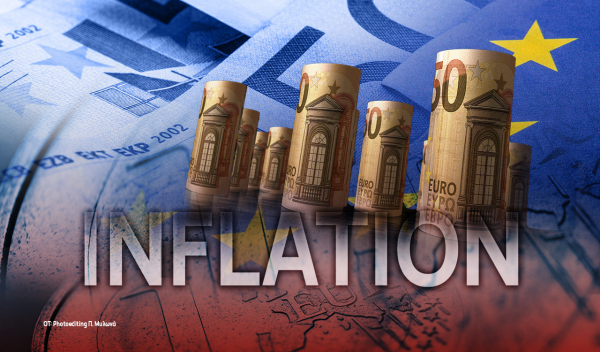
The European Commission’s 2023 European Semester Spring Package calls on Greece to maintain what the latter calls its dynamic and consistent implementation of the Recovery and Resilience Plan (RRP).
The Commission said that the RRP includes an extensive group of inter-supportive reforms and investments that will be implemented as of 2026, and that the RRP has been progressing well. It is important for the dynamic of implementation to be continued, it said.
“Whilst Greece is off to a strong start, there are substantial risks going forward, which warrant continuous efforts to maintain and enhance the implementation momentum,” the report said. “The Plan contains a significant number of reforms and investments which by its sheer size represents a large administrative burden. At this stage, the implementation of the plan is reaching a phase that will rely on regional and local administrations, whose administrative and implementation capacity is generally weak. The completion of a number of measures in the plan requires a series of preparatory steps, including public procurement procedures.”
It also noted that the continued implementation of the RRP depends on the administrative and executive ability of the involved agencies, including regional and local administration.
Conversely, the recommendations issued by the Commission for Greece read:
Wind down the energy support measures in force by the end of 2023, using the related savings to reduce the government deficit. Should renewed energy price increases necessitate support measures, ensure that these are targeted at protecting vulnerable households and firms, fiscally affordable, and preserve incentives for energy savings. Ensure prudent fiscal policy, in particular by limiting the nominal increase in nationally financed net primary expenditure in 2024 to not more than 2.6%. Preserve nationally financed public investment and ensure the effective absorption of RRF grants and other EU funds, in particular to foster the green and digital transitions. For the period beyond 2024, continue to pursue a medium-term fiscal strategy of gradual and sustainable consolidation, combined with investments and reforms conducive to higher sustainable growth, to achieve a prudent medium-term fiscal position.
Building on reforms undertaken as part of the recovery and resilience plan, improve the investment friendliness of the taxation system by introducing an advance tax ruling system, enlarge the tax base, including by reviewing the current taxation structure for the self-employed, and strengthen tax compliance by extending the use of electronic payments. Preserve and increase the autonomy of the tax administration authority by extending its mandate to develop and manage its information systems and human resources. Safeguard the efficiency of public administration while ensuring it can attract the right skills and preserving consistency with the unified wage grid. Pursue the ongoing reduction of non-performing loans and further improve the functioning of the secondary non-performing loans market. 2. Maintain the momentum in the steady implementation of the recovery and resilience plan and swiftly finalise the REPowerEU chapter with a view to rapidly starting its implementation. Ensure continued sufficient administrative capacity in view of the size of the plan. Proceed with the speedy implementation of cohesion policy programmes, in close complementarity and synergy with the recovery and resilience plan. 3. To ensure adequate and equal access to healthcare, complete the roll-out of the primary healthcare framework and adopt stronger incentives for the enrolment of an adequate number of family doctors in order to achieve full population coverage and population registration. Finalise cadastre reform by completing cadastral mapping and the establishment and operation of the Hellenic Cadastre Agency. 4. Reduce reliance on fossil fuels and further accelerate the diversification of energy supply routes. Further expand the deployment of renewable energy by completing and enforcing the new legal frameworks for the licensing process and for offshore wind farms, increasing electricity network and storage capacity, promoting the decentralised production of renewable energy, and putting in place legislative frameworks for the production of renewable hydrogen and biomethane. Step up the delivery of measures that improve energy efficiency, including targeted measures for energy-poor households and the installation of smart meters, and policy efforts aimed at the provision and acquisition of the skills needed for the green transition. Support the decarbonisation of the transport sector, in particular by promoting electric vehicles.
Latest News

Greece Defines Continental Shelf Limits and Maritime Zones in Landmark EU Document
The Maritime Spatial Planning (MSP) framework represents a comprehensive approach to spatial planning and is crucial for the successful development of a blue and circular economy

EU Praises Greece’s RRF Progress as Revised Recovery Plan Nears Completion
Athens is preparing to submit its revised “Greece 2.0” Recovery and Resilience Plan after Easter, with a slight delay from the initial timeline but with the European Commission’s approval.

Greek €200M 10Y Bond to be Issued on April 16
The 3.875% fixed-interest-rate bond matures on March 12, 2029, and will be issued in dematerialized form. According to PDMA, the goal of the re-issuance is to meet investor demand and to enhance liquidity in the secondary bond market.

German Ambassador to Greece Talks Ukraine, Rise of Far Right & Tariffs at Delphi Economic Forum X
Commenting on the political developments in his country, the German Ambassador stressed that it was clear the rapid formation of a new government was imperative, as the expectations across Europe showed.

Athens to Return Confiscated License Plates Ahead of Easter Holiday
Cases involving court orders will also be excluded from this measure.

Servicers: How More Properties Could Enter the Greek Market
Buying or renting a home is out of reach for many in Greece. Servicers propose faster processes and incentives to boost property supply and ease the housing crisis.

Greek Easter 2025: Price Hikes on Lamb, Eggs & Sweets
According to the Greek Consumers’ Institute, hosting an Easter dinner for eight now costs approximately €361.95 — an increase of €11 compared to 2024.

FM Gerapetritis Calls for Unified EU Response to Global Crises at EU Council
"Europe is navigating through unprecedented crises — wars, humanitarian disasters, climate emergencies," he stated.

Holy Week Store Hours in Greece
Retail stores across Greece are now operating on extended holiday hours for Holy Week, following their Sunday opening on April 13. The move aims to accommodate consumers ahead of Easter, but merchants remain cautious amid sluggish market activity.

Green Getaway Ideas for Easter 2025 in Greece
Celebrate Easter 2025 in Greece the sustainable way with eco-farms, car-free islands, and family-friendly getaways rooted in nature and tradition.









































 Αριθμός Πιστοποίησης
Αριθμός Πιστοποίησης